第77章
HERBERT.Thank you.But what is it in human nature that is apt to carry a man who may take a step in personal reform into so many extremes?
OUR NEXT DOOR.Probably it's human nature.
HERBERT.Why, for instance, should a reformed drunkard (one of the noblest examples of victory over self) incline, as I have known the reformed to do, to spiritism, or a woman suffragist to "pantarchism"(whatever that is), and want to pull up all the roots of society, and expect them to grow in the air, like orchids; or a Graham-bread disciple become enamored of Communism?
MANDEVILLE.I know an excellent Conservative who would, I think, suit you; he says that he does not see how a man who indulges in the theory and practice of total abstinence can be a consistent believer in the Christian religion.
HERBERT.Well, I can understand what he means: that a person is bound to hold himself in conditions of moderation and control, using and not abusing the things of this world, practicing temperance, not retiring into a convent of artificial restrictions in order to escape the full responsibility of self-control.And yet his theory would certainly wreck most men and women.What does the Parson say?
THE PARSON.That the world is going crazy on the notion of individual ability.Whenever a man attempts to reform himself, or anybody else, without the aid of the Christian religion, he is sure to go adrift, and is pretty certain to be blown about by absurd theories, and shipwrecked on some pernicious ism.
THE FIRE-TENDER.I think the discussion has touched bottom.
III
I never felt so much the value of a house with a backlog in it as during the late spring; for its lateness was its main feature.
Everybody was grumbling about it, as if it were something ordered from the tailor, and not ready on the day.Day after day it snowed, night after night it blew a gale from the northwest; the frost sunk deeper and deeper into the ground; there was a popular longing for spring that was almost a prayer; the weather bureau was active;Easter was set a week earlier than the year before, but nothing seemed to do any good.The robins sat under the evergreens, and piped in a disconsolate mood, and at last the bluejays came and scolded in the midst of the snow-storm, as they always do scold in any weather.The crocuses could n't be coaxed to come up, even with a pickaxe.I'm almost ashamed now to recall what we said of the weather only I think that people are no more accountable for what they say of the weather than for their remarks when their corns are stepped on.
We agreed, however, that, but for disappointed expectations and the prospect of late lettuce and peas, we were gaining by the fire as much as we were losing by the frost.And the Mistress fell to chanting the comforts of modern civilization.
THE FIRE-TENDER said he should like to know, by the way, if our civilization differed essentially from any other in anything but its comforts.
HERBERT.We are no nearer religious unity.
THE PARSON.We have as much war as ever.
MANDEVILLE.There was never such a social turmoil.
THE YOUNG LADY.The artistic part of our nature does not appear to have grown.
THE FIRE-TENDER.We are quarreling as to whether we are in fact radically different from the brutes.
HERBERT.Scarcely two people think alike about the proper kind of human government.
THE PARSON.Our poetry is made out of words, for the most part, and not drawn from the living sources.
OUR NEXT DOOR.And Mr.Cumming is uncorking his seventh phial.Inever felt before what barbarians we are.
THE MISTRESS.Yet you won't deny that the life of the average man is safer and every way more comfortable than it was even a century ago.
THE FIRE-TENDER.But what I want to know is, whether what we call our civilization has done any thing more for mankind at large than to increase the ease and pleasure of living? Science has multiplied wealth, and facilitated intercourse, and the result is refinement of manners and a diffusion of education and information.Are men and women essentially changed, however? I suppose the Parson would say we have lost faith, for one thing.
MANDEVILLE.And superstition; and gained toleration.
HERBERT.The question is, whether toleration is anything but indifference.
THE PARSON.Everything is tolerated now but Christian orthodoxy.
THE FIRE-TENDER.It's easy enough to make a brilliant catalogue of external achievements, but I take it that real progress ought to be in man himself.It is not a question of what a man enjoys, but what he can produce.The best sculpture was executed two thousand years ago.The best paintings are several centuries old.We study the finest architecture in its ruins.The standards of poetry are Shakespeare, Homer, Isaiah, and David.The latest of the arts, music, culminated in composition, though not in execution, a century ago.
THE MISTRESS.Yet culture in music certainly distinguishes the civilization of this age.It has taken eighteen hundred years for the principles of the Christian religion to begin to be practically incorporated in government and in ordinary business, and it will take a long time for Beethoven to be popularly recognized; but there is growth toward him, and not away from him, and when the average culture has reached his height, some other genius will still more profoundly and delicately express the highest thoughts.
HERBERT.I wish I could believe it.The spirit of this age is expressed by the Calliope.
THE PARSON.Yes, it remained for us to add church-bells and cannon to the orchestra.
OUR NEXT DOOR.It's a melancholy thought to me that we can no longer express ourselves with the bass-drum; there used to be the whole of the Fourth of July in its patriotic throbs.
MANDEVILLE.We certainly have made great progress in one art,--that of war.
THE YOUNG LADY.And in the humane alleviations of the miseries of war.